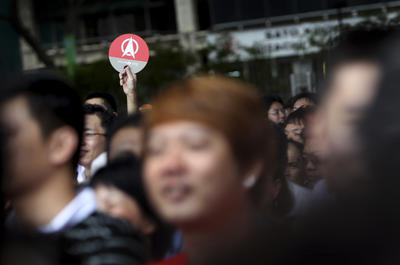This resulted in the ruling People’s Action Party (PAP) sweeping the polls. The PAP’s complete monopoly of Parliament lasted until 1981, when an opposition candidate won a seat in a by-election. Opposition inroads into Parliament have remained limited since then.
This year, however, the opposition is contesting 82 out of the total 87 parliamentary seats. Although the opposition is not expected to displace the PAP, the fact that it is putting up a substantial challenge indicates a tentative but tangible evolution of Singapore’s parliamentary system. At the very least, the election results will show what percentage of Singaporeans support the PAP across these 82 seats, providing an accurate picture of the national mood.
The presence of several strong and credible opposition candidates also signifies this evolution of parliamentary politics. Earlier, aspirants were held back from joining the opposition because of what was described as a culture of fear; in reality, their chances of winning were often marginal. This year, both the culture of fear and the marginality of success have given way to an upsurge of interest in running for the opposition. Opposition candidates believe that the tide is turning in their favour.
But is it really? It is difficult to say. Two sets of issues have come to the fore during campaigning. The first are bread-and-butter issues: the rising cost of living, including the difficulty that young, first-time buyers reportedly face in access to public housing; and a sharp increase in immigration, which critics blame for taking away jobs from Singaporeans, overcrowding a city-state, and diluting a sense of national identity. The second set of issues is ideational: the opposition argues that a strong presence is needed in Parliament to check the PAP and thereby uphold democracy. The opposition is trying to connect the two sets of issues and package them into a single, winning whole. While its strategy will appeal to liberals, what remains to be seen is whether it will cut any ice with hardboiled, pragmatic Singaporeans who want to know how much butter is on their bread, not the kind of knife used to butter that bread.
Two other related issues will have a bearing on the election results. The first is the large number of young voters, and the second is the impact of social networking media such as Facebook and Twitter. Both these issues will influence the outcome of an election that will determine the content and style of governance in a country where good administration has long superseded visceral contestation as the benchmark of politics. Whatever the outcome of the polls on 7 May, politics in Singapore will not be the same again.
Ambassador K. Kesavapany is director of the Institute of Southeast Asian Studies. He is also Singapore’s Non-Resident Ambassador to Jordan.

